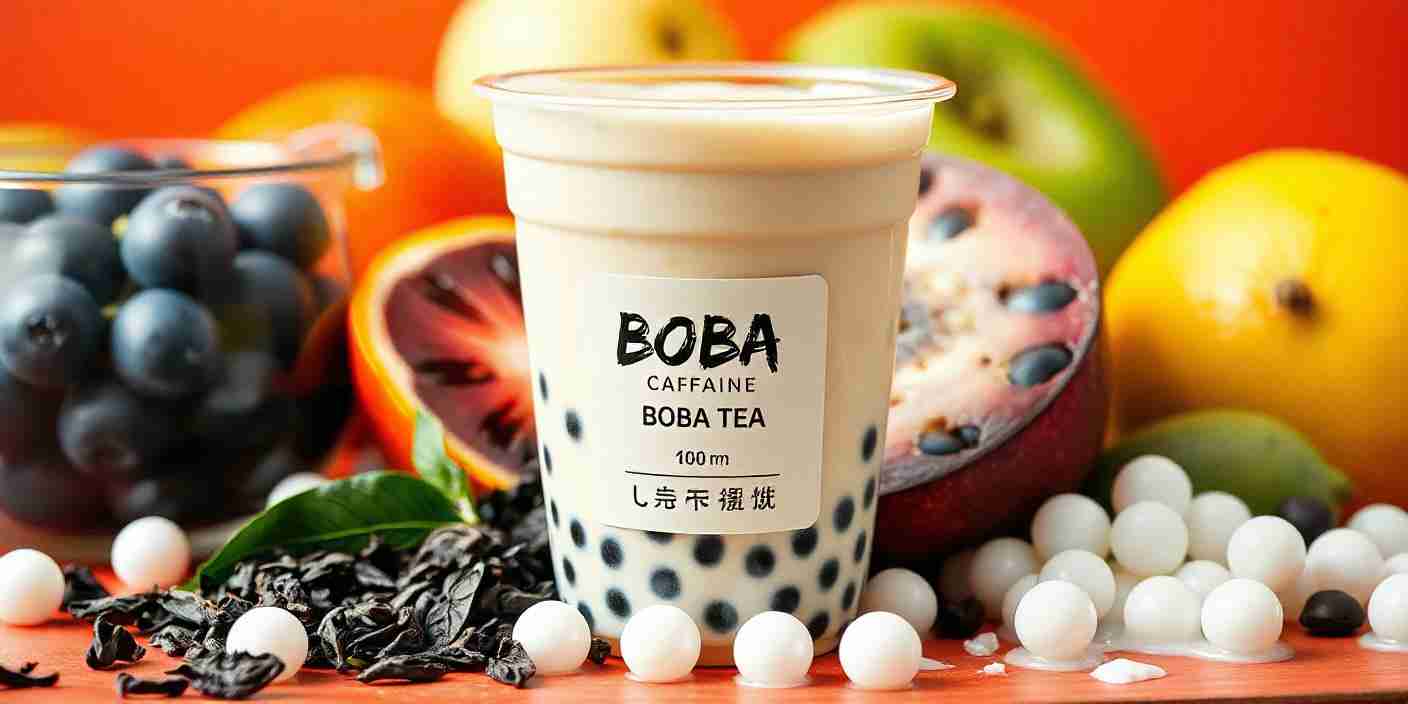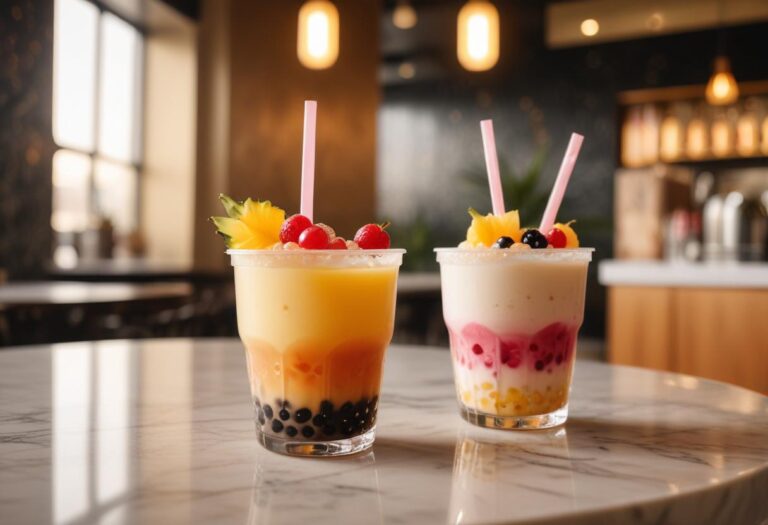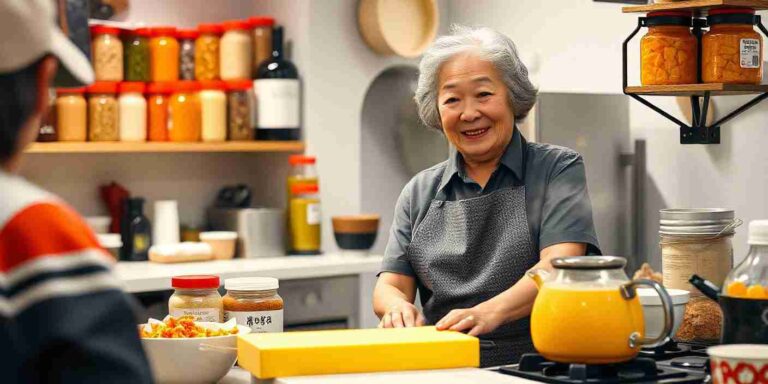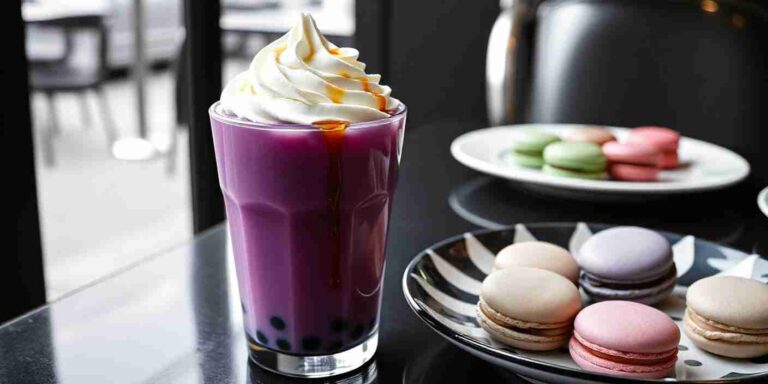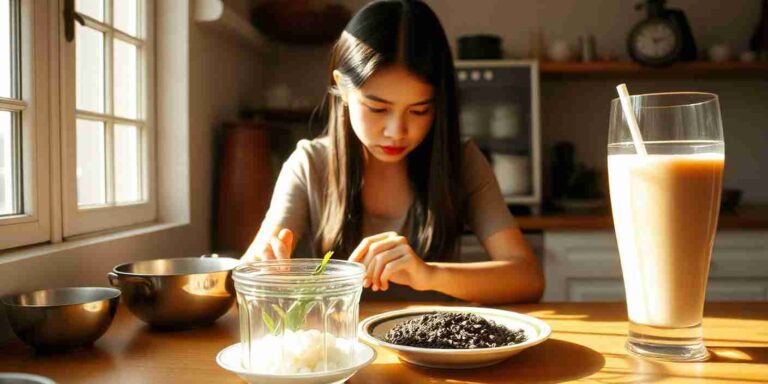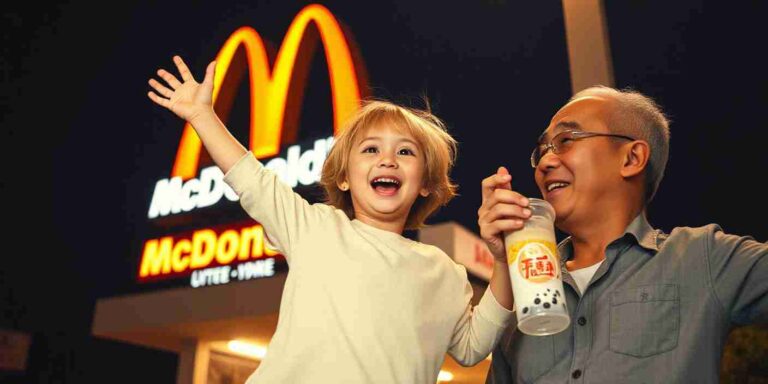How Much Caffeine is in Boba Tea? A Complete Guide to Your Favorite Drink!
How Much Caffeine is in Boba Tea? Boba tea typically contains around 30 to 60 milligrams of caffeine per serving, depending on the type of tea used.
If you’re a fan of this delicious drink, you might be curious about how much caffeine is in boba tea and how it compares to other beverages.
Key Takeaways
- Caffeine Levels: Boba tea typically contains between 30 to 60 mg of caffeine per serving, influenced by the type of tea used and other factors.
- Types of Tea: Black tea generally has the highest caffeine content, while green and white teas contain less, affecting overall boba tea caffeine levels.
- Factors Influencing Caffeine: The brewing method, serving size, and additional ingredients can significantly alter the caffeine content in your boba drink.
- Comparison with Other Beverages: Boba tea usually has less caffeine than coffee (80–110 mg) but can be comparable to energy drinks (around 80 mg).
- Health Considerations: Moderate caffeine intake from boba may enhance physical performance and mental focus but excessive consumption could lead to anxiety and sleep disturbances.
Overview Of Boba Tea
Boba tea, often called bubble tea, is a popular drink that started in Taiwan during the 1980s. This beverage combines brewed tea with milk or non-dairy alternatives and sweeteners. The highlight of boba tea is its chewy tapioca pearls, which add texture to each sip.
You can find various flavors and types of boba tea, making it appealing to many people. Ingredients vary widely, allowing for unique combinations.
The most common teas used include black tea and green tea. Each type affects the overall taste and caffeine levels.
The caffeine content in boba tea varies based on several factors:
- The type of tea used
- The brewing method
- The serving size
- Additional ingredients
On average, a cup contains about 50 mg of caffeine, but this can range from 20 mg to 80 mg depending on these factors.
Knowing the caffeine level helps you choose your drink wisely, especially if you’re sensitive to caffeine or looking for an energy boost.
When selecting your boba, consider both flavor and caffeine content for an enjoyable experience.
Caffeine Content In Boba Tea
Boba tea, also known as bubble tea, contains varying amounts of caffeine based on several factors. Typically, caffeine levels in boba tea range from 100 mg to 160 mg per cup.
Research conducted by the Hong Kong government found that one cup may contain up to 160 mg of caffeine. Understanding these levels helps you make better choices about your drink.
Variations Of Boba Tea
Different types of tea leaves influence the caffeine content in boba tea. Common variations include:
- Black Tea: This type generally has the highest caffeine content among teas used for boba.
- Green Tea: Green tea-based boba teas usually contain less caffeine but still offer a mild energy boost.
- White Tea: White tea typically has lower caffeine levels compared to black and green tea.
Many shops let you customize your drink, allowing adjustments to the strength of the tea.
Factors Affecting Caffeine Levels
Several factors affect how much caffeine is in your boba tea:
- Type of Tea Used: Different teas have different natural caffeine amounts.
- Brewing Method: Longer brewing times can increase caffeine extraction.
- Serving Size: Larger servings naturally contain more caffeine.
- Additional Ingredients or Flavorings: Add-ons like espresso shots can significantly raise overall caffeine content.
Being aware of these factors helps you choose a boba drink that meets your preferences and dietary needs.
Comparison With Other Beverages
Boba tea contains varying amounts of caffeine compared to other popular drinks. Understanding these differences helps you choose your beverage wisely.
Popular Teas And Their Caffeine Content
Different types of teas used in boba tea have distinct caffeine levels:
- Black Tea: Contains 40–50 mg of caffeine per cup.
- Green Tea: Contains 20–30 mg of caffeine per cup.
- Oolong Tea: Contains 25–35 mg of caffeine per cup.
These amounts can influence the total caffeine content in your boba tea, depending on how the tea is brewed and served.
Comparison With Coffee And Energy Drinks
When comparing boba tea’s caffeine content with coffee and energy drinks, the differences become clear:
- Coffee: A typical cup has about 80–110 mg of caffeine.
- Espresso: Offers around 80 mg for a 60 ml serving.
- Filter Coffee: Provides approximately 90 mg for a 200 ml serving.
- Energy Drinks: Usually contain around 80 mg in a 250 ml serving.
While boba tea generally has less caffeine than coffee, it can still pack a punch depending on its ingredients.
Health Considerations
Caffeine in boba tea can influence your health in various ways. Understanding the effects of caffeine helps you make better choices about your drink.
Benefits Of Caffeine
Caffeine offers several benefits that can enhance daily activities and overall health.
- Physical Performance: Caffeine improves endurance during exercise, helping you push through longer workouts with less fatigue.
- Mental Focus: Caffeine boosts alertness and concentration, making it easier to complete tasks effectively.
- Health Benefits: Moderate caffeine intake may lower the risk of diseases like Alzheimer’s and Parkinson’s. Regular consumption might support brain function as you age.
Risks Of Excessive Caffeine Intake
While caffeine has benefits, excessive consumption poses risks.
- Anxiety Issues: High amounts of caffeine can increase feelings of anxiety or nervousness for some people.
- Sleep Disruption: Consuming too much caffeine, especially later in the day, may lead to sleep problems or insomnia.
- Heart Rate Changes: Excessive caffeine can cause an increased heart rate or palpitations in certain individuals.
Balancing caffeine intake is crucial for enjoying its positive effects while minimizing potential downsides.
Conclusion
Understanding the caffeine content in boba tea helps you make informed choices. With variations depending on the type of tea and how it’s prepared you can enjoy your drink while keeping health considerations in mind. Moderation is key to reaping the benefits without experiencing negative effects.
Next time you indulge in this popular beverage remember to consider its caffeine levels alongside your overall consumption.
Enjoying boba tea can be a delightful experience when you’re aware of what’s in it and how it affects your body.
Frequently Asked Questions
What is the caffeine content of boba tea?
Boba tea’s caffeine content varies widely depending on the type of tea used, brewing methods, and serving sizes. Generally, it can range from 30 to 90 mg per serving, making it lower than coffee but comparable to some teas.
How does boba tea compare to coffee in terms of caffeine?
Boba tea typically contains less caffeine than a standard cup of coffee. While a regular cup of coffee can have about 95 mg or more per 8 oz, boba tea usually falls between 30-90 mg depending on its ingredients.
Are there health benefits associated with caffeine in boba tea?
Yes, moderate caffeine intake from boba tea may enhance physical performance and improve mental focus. However, it’s essential to consume it responsibly to avoid potential side effects like anxiety or sleep disturbances.
What are the risks of too much caffeine from boba tea?
Excessive consumption of caffeine can lead to several health issues including increased heart rate, anxiety, and sleep disruption. It’s important to monitor your overall intake for optimal health.
How can I balance my caffeine consumption with boba tea?
To balance your caffeine intake while enjoying boba tea, be mindful of portion sizes and frequency. Consider alternating with lower-caffeine beverages or limiting sugary toppings that may encourage overconsumption.
